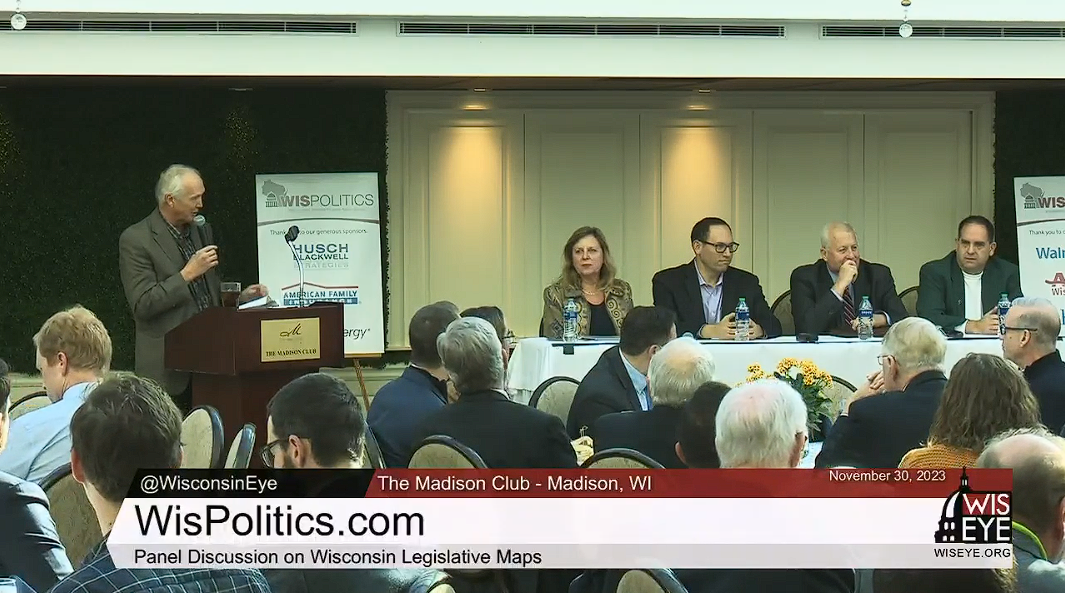Conservative law firm Wisconsin Institute for Law & Liberty President Rick Esenberg warned the accelerated actions he expects of the new liberal Supreme Court on redistricting could complicate a tight timeline for new legislative maps.
Esenberg made the comments at a WisPolitics luncheon Thursday Jeff Mandell, president of the liberal law firm Law Forward who's involved in the lawsuit asking j...
Please log in to access subscriber content.
If you don't have a subscription, click here for a WisPolitics free trial and to view the different subscription options.


